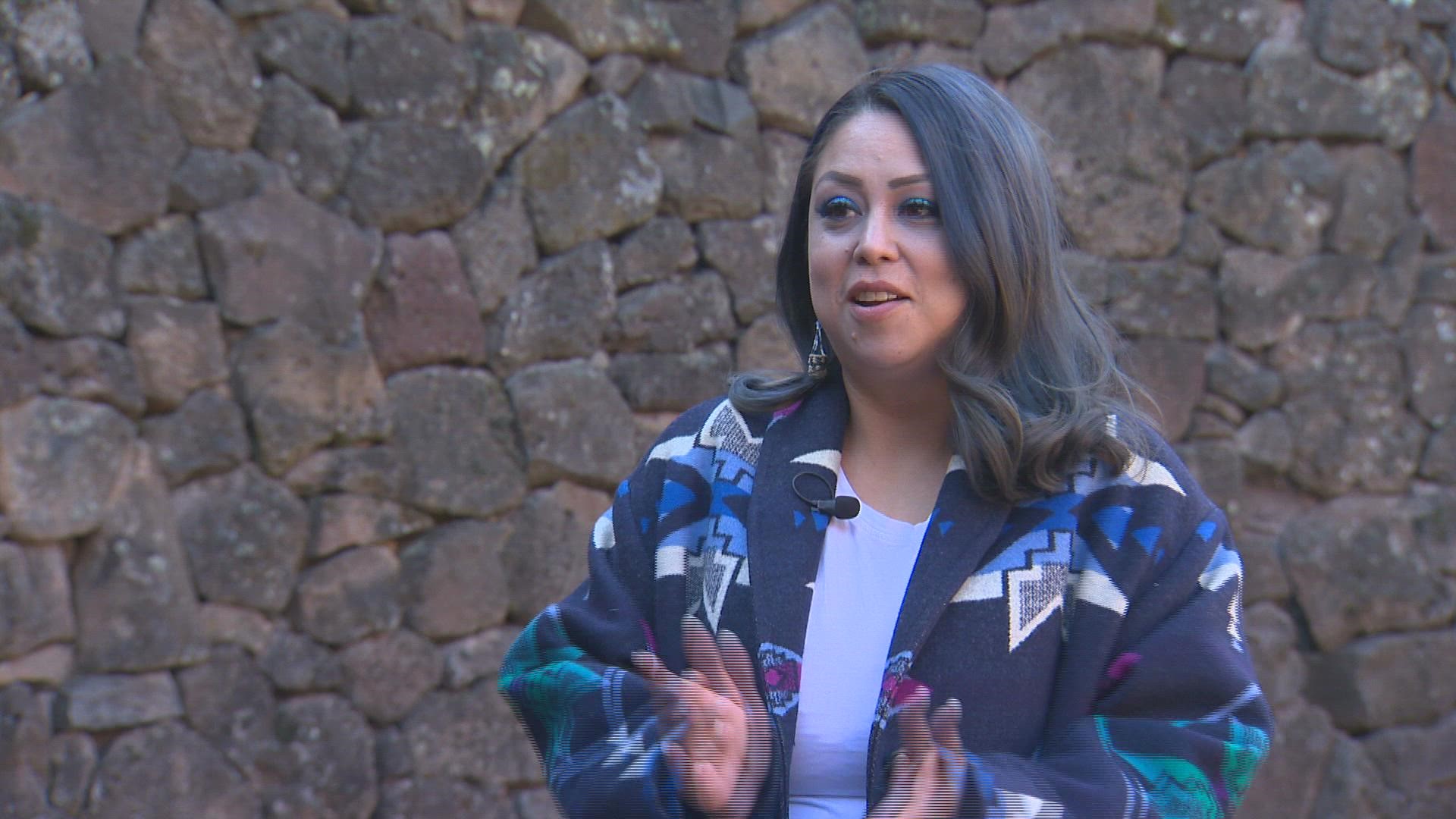WARM SPRINGS, Ore — For the first time in its 35-year history, the Columbia River Gorge Commission will be led by an Indigenous woman.
Carina Miller, an enrolled member of the Confederated Tribes of Warm Springs, was elected chair of the 13-member commission, which oversees land-use policy in the gorge.
Miller joins another Indigenous woman in leadership of the commission. Pah-Tu Pitt, also a member of the Confederated Tribes of Warm Springs, is entering her second year as the commission’s vice-chair.
Miller said it was an honor to serve as the organization’s first Indigenous leader, but that she and Pitt offer more than just the perspective of tribal advocates.
“Our positions on this commission have more to do with our backgrounds in environmentalism, our background in policy, our background in other areas,” Miller said. “It’s always something to be proud of when you can represent the community in this way, that you’re valuable because of your intelligence and you’re not just there because you’re a tribal rep.”
Miller grew up on the Warm Springs Reservation and started attending commission meetings in 2016, and she was appointed to her seat by Gov. Kate Brown in 2019.
Her connection to the gorge goes back much further than that, though.
“My grandma and my great grandma, Faye and Fanny Waheneka, they would specifically take me to the river, take me on drives, take me to go eat and talk to me about needing to have a presence there, about the removal and relocation of our tribe to this area, but that we still had ties back there,” Miller told KGW during an interview near her home in Warm Springs.
The commission is made up of 13 members – six from Oregon and six from Washington as well as a non-voting member from the U.S. Forest Service. Together, they oversee a management plan for the National Scenic Area, which spans six counties, two states and nearly 300,000 acres stretching from Troutdale to east of The Dalles.
The commission's job is twofold, Miller said: advancing the economic concerns of people who live and work in the gorge, while also protecting the natural beauty that draws so many visitors to the region.
“It’s really complicated to work with people when there are so many different views within these communities and we are trying to balance these things that are often pitted against each other,” she said, noting that, while her tribal identity isn’t why she was chosen to lead the commission, it does help inform the approach she’ll take.
“It’s nothing new to me to walk into something completely overwhelming, to be able to untangle a knot and re-braid it into something super accessible and clean because that’s what being a tribal leader is,” she said.
And there’s no shortage of complicated tasks at hand for the commission. The management plan typically gets updated every 10 years, Miller said, but she’s looking for ways to measure its success in between updates.
The commission is also nearing the final stages of releasing a Climate Change Action Plan, which will attempt to tackle some of the biggest threats to natural resources in the gorge: wildfires and rising river temperatures.
“Climate change, forest fires, all these things are going to have a huge negative impacts,” Miller said. “Economically, environmentally and, for me, spiritually.”
For all of the complexities of the job she’ll start on Jan. 1, 2023 – the differing viewpoints, the competing interests, the politics of compromise necessary to oversee such an economically and geographically diverse area – Miller said she still looks back to the lessons she learned in her youth for guidance.
“I think about my grandmas. I think about what it must have felt like for some of those older generations that didn’t know if we were going to make it,” she said, recalling the drives she took with her elders when she was a kid. “They taught those lessons and gave me the self-actualization to come into these places and know that I belong.”

